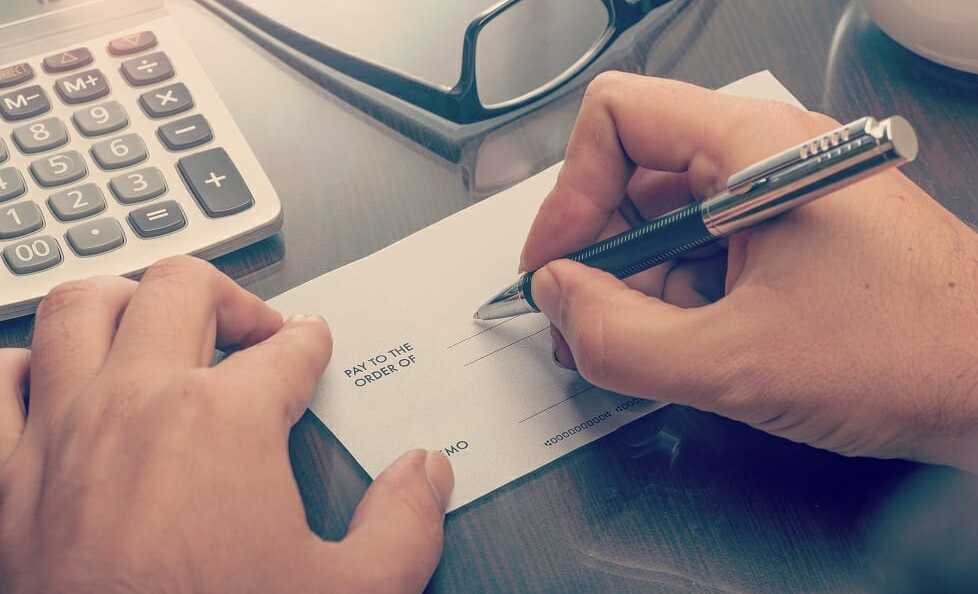You can ask your bank to cancel a check before it is processed by requesting a stop payment. The bank will flag the check you provided after requesting a stop payment, and anyone attempting to cash or deposit it will be refused. Requesting a stop-payment may make sense in the case of lost or stolen checks, but it will not work in all cases. You can only issue a stop payment if you own the account that paid the check, and you can be charged a fee.
How Does It Work?
You'll give the bank details about a specific check you wrote when you seek a stop payment. Following these steps, you can issue a stop-payment on a check at any moment before it is processed:- Make a call to your bank.
- Please give them the following information about your check: the check number, the amount, the payee, and the date.
- Follow up with a letter.
- Payment of a fee
What Does It Cost?
Banks normally charge a fee to flag your check and prevent it from being paid. A cost of around $30 is usual, but it's always worth double-checking. Customers with certain checking accounts may be eligible for a fee waiver, or you may be charged less if you request a stop payment online or over the phone. 45 It may also be cheaper to cancel multiple checks at once (if necessary) rather than cancel them one by one.How Long Will It Last?
Your bank will be on the lookout for the check for six months. Because bank policies differ, be careful to double-check with yours. The stop-payment will after that expires. If you wish to keep the stop payment order beyond that, you'll probably have to renew it for a cost. Cashier's Checks are a type of check issued by a cashier. You can't stop a cashier's check from being paid. Because the bank is obligated to pay the money, it is not permitted to refuse the check when it is presented (either cashed by the recipient or deposited to a bank account). You can request a check cancellation if you feel the check has been lost or stolen. Report the problem to the bank immediately; you'll need to file a declaration of loss, a document in which you state (under penalty of perjury) that you don't have the check. A 90-day waiting period begins, during which the bank may restore your funds. However, a thief might still present the check within those three months, so be cautious. While you can request a cancellation for theft or loss, you can't simply change your mind and cancel a cashier's check. If that's the case, you'll have to look for another way to recover your money from the payee.Cashier's Checks
You can cancel a money order and request a refund if it hasn't been deposited or cashed yet. You'll need to fill out a form, just as with cashier's checks, and the procedure can take a while—usually 30 to 60 days. You can either send or fill out the form in person. You'll also be charged a cost, though it won't be as high as what banks routinely charge for canceled cashier's checks, which range from $6 to $18. in most cases.Cards de debit
Debit card transactions can be completed in a matter of seconds. This makes canceling or stopping a debit card payment considerably more difficult. If you disagree with a merchant and don't want to pay for something you bought, contact your bank to see if the transaction can be canceled. Debit cards do not offer the same level of consumer protection as credit cards, but your bank can often assist you. It's a different matter if your debit card is lost or stolen; you must contact your bank immediately.Electronic Funds Transfers
Stopping an ACH payment is like stopping a check payment, as an ACH reversal can only be done for the erroneous amount, the wrong account, or a duplicate transaction. If you're anticipating a pre-authorized electronic payment to hit your checking account, you can halt it by contacting your bank and requesting a stop payment. You can offer your bank verbal instructions up to three days before the charge is due, but you must confirm them in writing within 14 days. It is, however, preferable to cancel the payment at the point of origin: Notify the billing company (e.g., your lender, insurance provider, or gym) that further withdrawals are not permitted. Also, write these directions down.Is it Legal to Put a Stop to Payments?
If a check is lost or stolen, it's a good idea to halt payment—especially if you've already engaged with the original payee about canceling the check and writing a new one. You can be placing yourself in danger in other scenarios. Consult with a local attorney if you're considering halting payment due to a disagreement or other comparable situation. Check fraud is when you pay for something with a check and then stop paying, so you don't have to pay for it. Although you may have a reasonable cause for not paying, bouncing checks is rarely a good choice. To avoid costs and legal difficulties, it's vital to stay on the right side of local legislation.Most Commonly Asked Questions
- What happens if the bank pays the check after I have stopped making payments?
- Is it possible to cancel a check payment over the phone?


